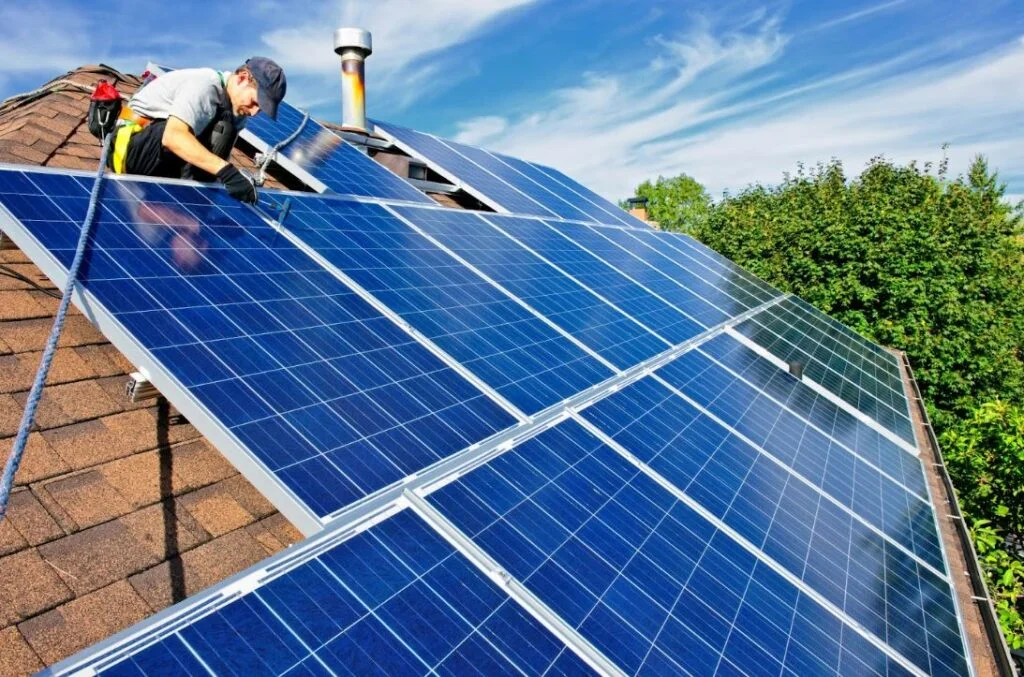Solar panels are excellent energy sources when you’re living off the grid. The best way to fully utilize the panels is by ensuring you convert as much of the energy trapped by your panels.
The energy you can tap from your solar panels depends on several factors, such as installation, properties, and maintenance. These factors ensure they work at their full potential and supply enough energy for your home or factory needs.
On the other hand, you can tweak some factors to increase solar panel efficiency. Here are some ways to boost your solar panel efficiency:
- Buy Technologically Advanced Panels
Introducing newer technological advancements is crucial in boosting their performance and ensuring durability. Remember, solar planes degrade with time. The superiority of technologies used in making solar panels can slow down the degradation rate and improve their durability.
Once your solar panels begin to degrade, they produce low energy, which might not be sufficient for your needs. To avoid affecting your solar panel lifespan, consider the following tips when purchasing one:
- Go for panels with half-cut cells separated into two parts which boost their efficiency and maintain durability.
- Buy panels with multi-bar cell technology to reduce the distance of travel, hence the increased output.
- Choose solar panels with a layer that controls the reactive levels to allow more light absorption.
These innovations are ideal as they help boost your panel’s efficiency.
- Go For High-Quality Panels

Solar panels contain different features and specifications, which influence their energy output. Choosing high-quality panels ensures your solar panel system works as required. First, consider the size. The bigger the panels, the more surface area they cover, hence the more sunlight they trap. The size ensures they trap enough to produce the required amount of energy. It’s also significant for the fill factor that ensures maximum space utilization during installation.
Secondly, consider the strength of the photovoltaic cells. They’re responsible for converting the energy into electricity. The more powerful they are, the better your solar system’s performance is.
Property owners can take advantage of the federal tax credit and save thousands of dollars on electric bills with a high-quality ground-mounted or roof-mounted solar system. Check out high-quality solar panels from a reputable solar energy company.
- Clean The Panels
Cleaning your panel’s glassware regularly is another excellent approach to boosting the panel’s performance. Watch out for the accumulation of dirt, bird droppings, leaves, and debris on your panel’s surface. They cause obstructions that limit the absorption of sunlight by the panels, and this causes them to perform poorly. Cleaning them restores energy generation. Note that it’s best to clean them when the temperatures are low. It helps avoid forming cracks or damaging the modules.
Regularly cleaning solar panels is essential for maintaining efficiency and maximizing power generation. Before cleaning, review manufacturer guidelines for safety and specific recommendations. Clean panels when cool using a soft brush and water with mild dish soap if needed. Avoid abrasive cleaners. Wipe with a non-abrasive cloth or use a squeegee for residue. Consider professional cleaning for hard-to-reach areas. Monitor panel performance post-cleaning, seeking professional assistance if there’s a significant decrease in energy production.
- Schedule Maintenance
Solar panels require minimal maintenance. However, it’s necessary to schedule preventive checks. They assist in checking whether all the components are performing as expected. You’ll notice any output variations early enough and act accordingly. A prolonged drop in output is the first sign of a maintenance-related hitch. You can hire a professional to monitor the performance and offer insights on maintaining your solar panels.
Seasonal cleanings at the beginning or end of each season may be beneficial to ensure optimal performance. Tailor maintenance frequency to environmental factors; areas with high dust, pollen, or bird activity may require more frequent cleanings. Monitoring panel performance regularly is crucial, as a significant decrease in energy production may signal the need for maintenance.
- Eliminate Shadows
Your solar panels need exposure to direct sunlight to trap as much as possible. Ensure there are no shadows cast on the panels for maximum efficiency. Note it only takes shading one cell to reduce your panels’ efficiency.
In the case of a new installation, thoroughly inspect the surroundings to make the most of your planning. Check for tall trees and buildings around your roof before installing the panels.
- Hire Qualified Installers
Choosing the best installers is essential for your panel’s performance. The installation plays a significant role in the performance of your panels. For instance, solar panels should face the right orientation for maximum sunlight absorption. Thus, they must ensure the panels face the true south. This way, your panels can receive the most direct sunlight. Only a professional and qualified expert will ensure the panels are installed right for efficient performance.
Hire a licensed and insured installer to ensure compliance with local regulations and protection in case of accidents during installation. Inquire about the installer’s experience in the solar industry and check for any manufacturer partnerships they may have. Review the warranty offered by the installer, ensuring it covers both equipment and installation work. Schedule interviews or meetings with potential installers to discuss the installation process, timeline, and how they handle challenges. If possible, visit previous installations completed by the installer to assess their workmanship.
- Ensure Air Flow Gaps
Energy generation in solar panels is inversely proportional to the temperature. If not installed properly, the panel system is subjected to overheating. When the sun gets hot, your roof sheets can heat up and speed up the overheating process. To counter this, leaving airflow gaps between the panels and your roofing sheet is a great call. An expert should be able to guide you on the correct dimensions to address such technicalities.
- Install Solar Cells Glazing
It’s essential to safeguard your panels from weather elements such as hail, rain, and snow. In this case, you need to cell-glaze your panels. It’s laminating the panels and shielding them from extreme weather elements. The process combines solar photovoltaics and glass to create specialized glazing. The glazing ensures the panels function appropriately and promotes durability.
Conclusion
You can do so much to improve your solar panel’s efficiency. Borrow the tips shared above and improve your solar panel system. Ensure you enlist the help of an expert during installation and maintenance. Otherwise, you risk damaging the solar components, which will reduce the panels’ performance rate.

